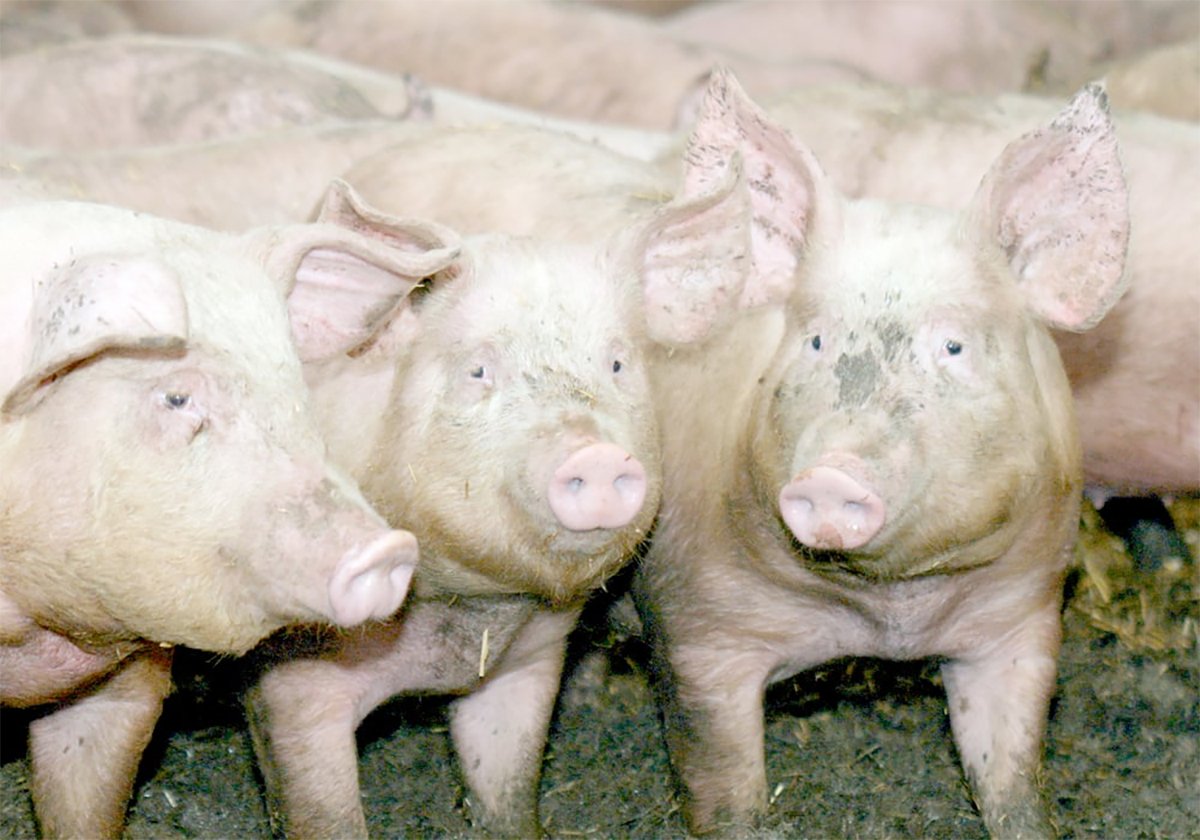Canadian hog producers are losing $30 to $50 per pig these days, caught in a pricing structure based on United States numbers hovering in the economic basement.
Though western Canadian hog processing plants have been running normally so far during the pandemic, numerous plants in the U.S. are closed or running at lower capacity due to worker shortages caused by COVID-19 infection and isolation.
That has caused a hog backlog and driven down U.S. prices. Canadian prices have fallen along with them.
Some American producers are euthanizing market ready hogs because they have neither the space nor the money to keep them on feed until processing plants come fully back on line. With no market for fat hogs due to inactive processing, prices have collapsed.
Read Also

The Western Producer Livestock Report – October 2, 2025
Western Producer Livestock Report for October 2, 2025. See U.S. & Canadian hog prices, Canadian bison & lamb market data and sale insight.
Rick Bergmann, a Manitoba pork producer and chair of the Canadian Pork Council, issued an open letter to the public last week asking them to lobby government for more hog sector support.
“While Canada’s pork is safe, COVID-19 has put Canada’s pork supply and food security at risk. COVID-19 is causing a major disruption in the lives of farmers and we can no longer be confident that we will be able to continue to deliver the pork you enjoy,” Bergmann wrote.
“Farmers have been telling government about the need to act for weeks, but it hasn’t been enough to get governments to get meaningful help to the producers that need it today. That is why farmers need your help.”
In an interview, Bergmann said he knows of one producer in Eastern Canada who had to euthanize pigs when the Olymel plant in Yamachiche temporarily closed in April.
However, sacrificing healthy pigs has not occurred on a wider scale so far.
“The last resort is for the producer to euthanize animals,” said Bergmann.
But giving pigs away for free in the absence of a U.S. market has already occurred on Bergmann’s own farm. He raises isoweans, young pigs destined to be fed out in U.S. hog operations.
With U.S. farms backed up with pigs and no room for more, that market disappeared.
“We gave them away. Those animals that cost us $40 to produce, now we have to give them away. It’s a very sad, disturbing topic.”
The federal government announced $225 million in funds for agriculture last week, some of it for the livestock sector.
Bergmann said during a news conference last week that the insufficient federal response resembled a cup of water to look after a house that’s burning down.
The CPC had asked for an immediate emergency payment of $20 per pig.
Alberta Pork has additionally asked the provincial government for a top up of the difference between the cost of production at $180 per hog and the settlement price received, said vice-chair Stan Vanessen, who operates a farrow-to-finish farm near Picture Butte, Alta.
“We’re looking to the provincial government to show some leadership,” he said.
The backlog of hogs in the U.S. could last for six months or more, keeping prices low. That’s particularly bad in summer, which is when producers tend to make the most money from pork, Vanessen said.
Federal funds added to AgriStability are welcome but many producers aren’t registered in the program.
That is the case for many Hutterite colonies that are major hog producers.
“There’s a lot of producers that are not on AgriStability because of being so diversified,” said Mark Wipf of Lakeside Colony near Cranford, Alta. “We’ve got to find our way around without it.”
Wipf said he is shipping hogs at lower weights than might usually be the case, just to ensure more space in barns should a western Canadian packing plant slow down or close. The colony ships 14,000 pigs a year to Maple Leaf in Lethbridge and Brandon.
Some prairie hog producers will not be able to withstand prolonged losses per pig, he added.
“I’m thinking if this thing doesn’t shape up … producers can only hold on for so long. Definitely some are going to kick the bucket.”
Bergmann shared concerns about the loss of family farms.
“We’re a tough bunch but everybody can only handle so much anxiety,” he said about prices and the looming spectre of processing plant problems.
“We’re one bad announcement away from some more difficult times.”

















